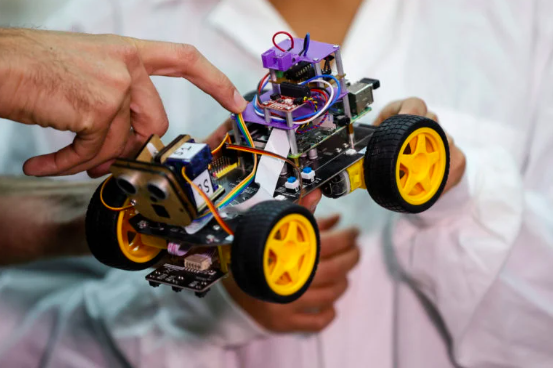
A scientist holds a newly-developed robot that, when fitted with a locust antenna, can detect and identify odours, at the Tel Aviv University, in Tel Aviv, Israel January 25, 2023. REUTERS/Amir Cohen
TEL AVIV, Israel — A new sniffing robot equipped with a biological sensor that uses the antennae of locusts could help advance disease diagnosis and improve security checks, its Israeli developers said.
Locusts have an acute sense of smell, which the researchers in Tel Aviv University have managed to harness to their bio-hybrid robot, making it far more sensitive than existing electronic sniffers, they said.
Locusts smell with their antennae. On the four-wheeled robot, the researchers placed the insect’s antenna between two electrodes that send electrical signals as a response to a nearby odor. Each scent has a unique signature which, with machine learning, the robot’s electronic system can identify.
“Ultimately, we are trying to create a robot with a sense of smell that will be able to distinguish between smells and to locate them in space,” said Neta Shvil of the Sagol School of Neuroscience.
As scientists try to understand how some animals detect disease by smell, fellow developer Ben Moaz said the future applications would almost be endless, extending to the detection of drugs and explosives and even food safety.
“We are overwhelmed with possibilities,” said Maoz of the Fleischman Faculty of Engineering and Sagol School of Neuroscience.
RELATED STORIES